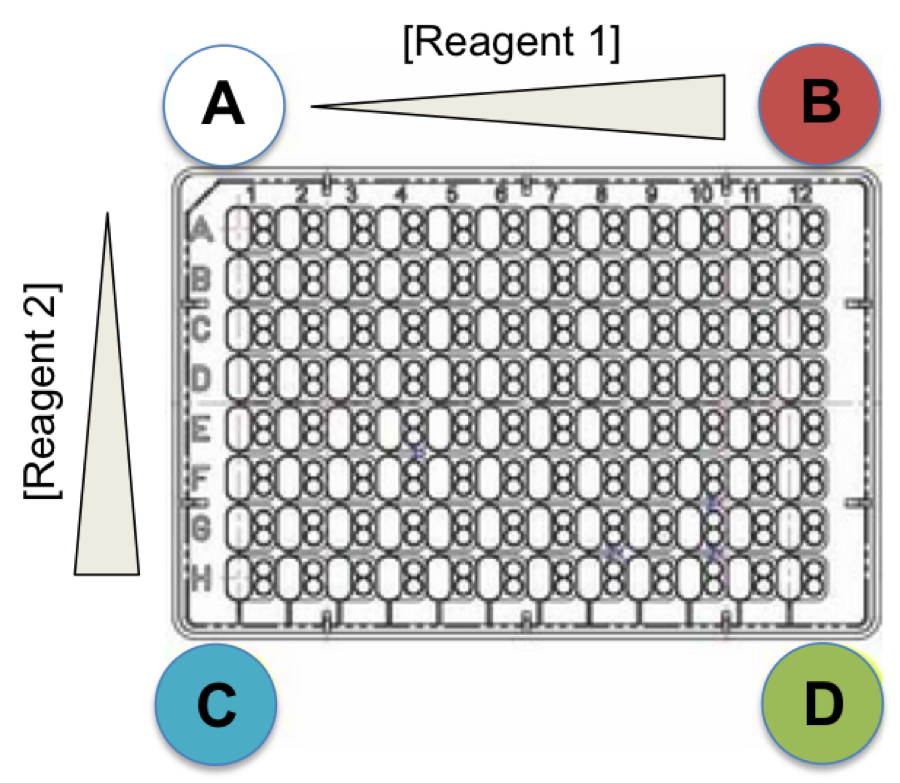
The 4-corner method is used to produce custom matrices with a linear 2D gradient of concentrations across a plate. This method makes it possible to automate theis process very efficiently as it makes the programming of the gradients independent of the stock solutions used. It also reduces the viscosity of the stock solutions in most cases. Finally, very small grandients in absolute terms can be preapred with great accuracy.
Please note that pH gradients require non-linear gradients to be pipetted and hence are best avoided using this method. We recommend to use one pH per plate and to prepare several plates with different pH.
Below, the example of a 12 x 8 matrix across the 96-condition MRC plate. Please note the position of the fours stock solutions to be prepared: A, B, C and D, representing the four extremes of the 2D gradient to be prepared.

Each worksheet generates each well's formulation of the screen and also the 4 solutions A, B, C, D required to prepare it.
The solutions have to be prepared by the user in Falcon tubes or similar. They will feed the DRAGONFLY (MRC or MAXI plate) or GENESIS (other plates) robot which handles the dilution matrix protocol.
The Table below includes links to download the worksheets and the names of the corresponding automated protocols.
| Worksheet | Protocol names (plate type + number of conditions) |
|---|---|
| 6 x 4 matrix | CRYSCHEM_24, LINBRO_24, EASYXTAL_24, MAXI_24 |
| 6 x 4 matrix duplex | MAXI_24_top__half, MAXI_24_bottom_half |
| 6 x 8 matrix | MAXI_48, CRYSCHEM_48*, LINBRO_48*, EASYXTAL_48* |
| 6 x 8 matrix duplex | MRC_48_left_half, MRC_48_right_half |
| 12 x 8 matrix | MRC_96 |
* The 6 x 8 matrix is formulated across two 24-well plates (top and bottom).
Notes:
Fabrice Gorrec, room 2N155, (+44 1223 26) 7807, fgorrec@mrc-lmb.cam.ac.uk
alternatively:
Jan Löwe, room 2N159, (+44 1223 26) 7064, jyl@mrc-lmb.cam.ac.uk
Olga Perisic, lab 2S069, (+44 1223 26) 7893, op1@mrc-lmb.cam.ac.uk
Last Updated 2/12/15